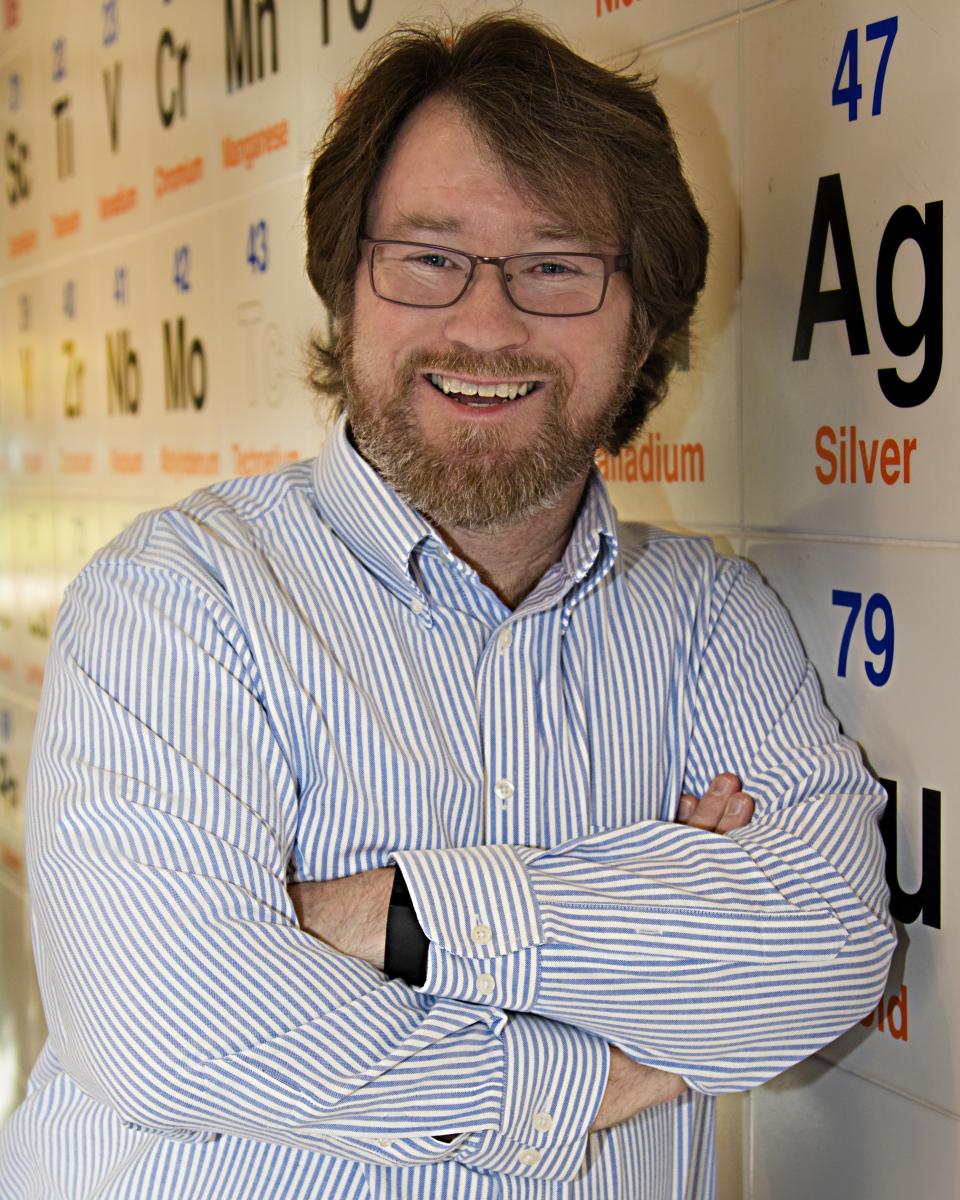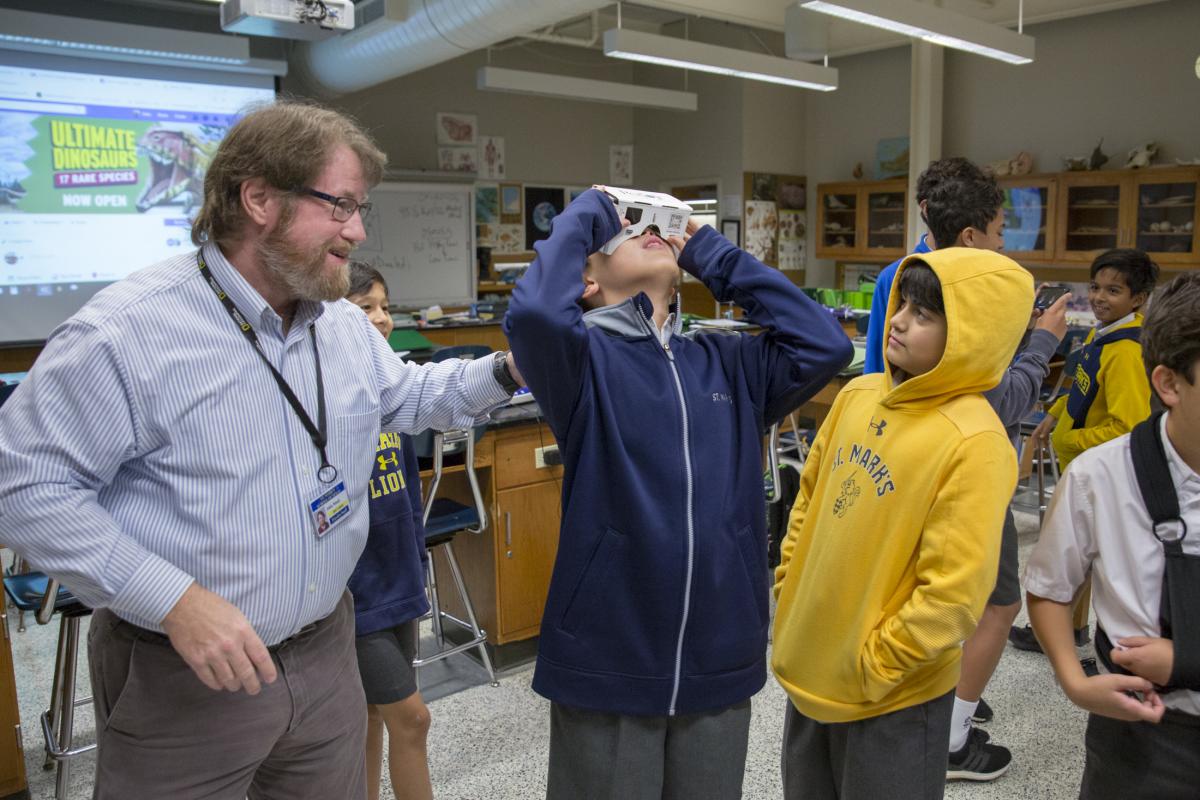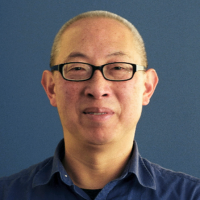 Our Teacher Ambassadors are amazing educators doing great work teaching the science of evolution and climate change in places where these topics may be socially controversial. They’re developing and field-testing lessons and providing professional development to colleagues who may be less confident, less prepared, or less comfortable teaching these subjects.
Our Teacher Ambassadors are amazing educators doing great work teaching the science of evolution and climate change in places where these topics may be socially controversial. They’re developing and field-testing lessons and providing professional development to colleagues who may be less confident, less prepared, or less comfortable teaching these subjects.
Today, we’re featuring John Mead, Eugene McDermott Master Teacher of Science at Saint Mark’s School of Texas, 2018 Outstanding Biology Teacher Award recipient, and one of our evolution teacher ambassadors.
What do you teach?
I’ve been teaching at Saint Mark’s School of Texas for 29 years. Over this time, I have taught various life sciences classes from grades 5 through 12. Over the years, my primary focus has been our sixth-grade life science class. In addition, I have also taught ninth-grade introductory biology and 12th-grade environmental science, as well as a fifth-grade physical science class. The one course I have taught consistently throughout my career has been the sixth-grade life science course. I currently teach a full class load of that particular course. In addition to my classroom responsibilities, I also served for seven years as assistant head of our middle school, the leader of our microscope club, and for the last 27 years I have led our ninth-grade students on their Pecos wilderness trip, which is a ten-day National Outdoor Leadership School-style backpacking trip to the mountains of New Mexico.
Why evolution?
Theodosius Dobzhansky famously wrote, “Nothing in biology makes sense except in the light of evolution.” Even before I was old enough to have heard this now-famous statement, I had fallen in love with the stories of human origins as a child and knew that evolution was the thread that tied all of humanity together and in turn connected all of humanity to the wider living world. As I passed through high school, college, and graduate school, my biology courses provided me with evolutionary details and examples that confirmed my early sense of the unified nature of life and allowed me to see the world through the lens of evolutionary biology. As such, I see evolution as the mortar that holds the bricks of our biological world together!
Why did you become an NCSE Teacher Ambassador?
For as clearly as I see the world through an evolutionary lens, I understand much of the world does not have the mortar of evolution to hold the facts of biology together. As a teacher who has had the privilege of both understanding the value of evolutionary thought and having met and worked with some  leading evolutionary scientists, I felt it was imperative that I share my experiences and knowledge with others in their journey of exploration about the connectedness of the biological universe. Upon seeing that NCSE, a pioneering voice on behalf of evolution education, was developing the Teacher Ambassador Program, I saw it as a natural fit to allow me to reach out to fellow teachers who want to improve both the depth and breadth of their evolution teaching.
leading evolutionary scientists, I felt it was imperative that I share my experiences and knowledge with others in their journey of exploration about the connectedness of the biological universe. Upon seeing that NCSE, a pioneering voice on behalf of evolution education, was developing the Teacher Ambassador Program, I saw it as a natural fit to allow me to reach out to fellow teachers who want to improve both the depth and breadth of their evolution teaching.
How has NCSE supported you or teachers you know in this work?
Historically NCSE has supported the teaching of evolution nationwide through great advocacy in the courts and the public square. With the advent of the NCSE Teacher Ambassador program, teacher ambassadors have the chance to extend this advocacy to our fellow teachers utilizing the resources and reputation of NCSE. We can reach out to teachers who may be nervous about teaching evolution due to fears of its “controversial” reputation. We can also share our classroom experiences as veteran evolution educators in workshops, conference sessions, and on-line forums so that our peers do not feel isolated when it comes to teaching evolution in places where they may not have significant support from their schools or local districts. By connecting such teachers with eager ambassadors and evolution experts, NCSE will be helping to stem the tide of evolution denial in schools here in the 21st century.

